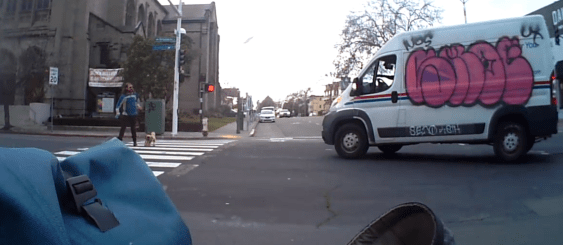
Every year state DOTs receive tens of billions of dollars in transportation funds from the federal government. By and large, they can do whatever they want with the money, which in most states means wasting enormous sums on pork-laden highway projects. Now that U.S. DOT might impose some measure of accountability on how states use these funds, of course the states are fighting to keep their spending habits as opaque as possible.
At issue are proposed "performance measures" that U.S. DOT will establish to track whether states make progress on goals like reducing traffic injuries or cutting greenhouse gas emissions from transportation. For the first time, state DOTs will have to set targets and measure their progress toward achieving them. It is strictly a transparency initiative -- there are no penalties for failure to meet the targets.
Nevertheless, the American Association of State Highway and Transportation Officials (AASHTO), doesn't want to expose the effect of state transportation policies to public scrutiny. AASHTO has released a 110-page comment [PDF] on U.S. DOT's proposed performance measures, rattling off a litany of objections.
Here are a few highlights:
AASHTO doesn't want to measure greenhouse gas emissions
In a meeting with federal officials in May [PDF], AASHTO leaders opposed a rule that would require state DOTs to measure their greenhouse gas emissions. Environmentalists and even some state DOTs support this rule (there is some diversity of opinion within AASHTO). But the AASHTO leadership really dislikes it. In its comments, AASHTO said it doesn't believe the feds have the "legislative authority" make state DOTs track carbon emissions.
AASHTO thinks its feedback should matter more than everyone else's
National advocacy organizations like Transportation for America have been alerting supporters to the federal rulemaking process, which could affect investments in walking, biking and transit projects around the country. But AASHTO says U.S. DOT shouldn't pay attention to feedback from advocates:
AASHTO is providing substantive comments that have been developed by seasoned professionals who understand both the breadth and depth of the issues surrounding performance measures. Simply put, the comments provided by AASHTO and the State DOTs should be given more weight than web-based “check the box” comments generated by advocacy organizations that do not have experience delivering transportation programs and projects.
This is a good time for a reminder that you can comment through Saturday.
AASHTO wants to set its own meaningless performance goals
U.S. DOT shouldn't make state DOTs set performance targets, AASHTO says. Instead, states should set their own targets. Furthermore, those targets should be completely toothless. "It is essential," AASHTO wrote, "that States and MPOs have the flexibility to set targets, including targets that have performance holding steady or, in some situations, declining."





